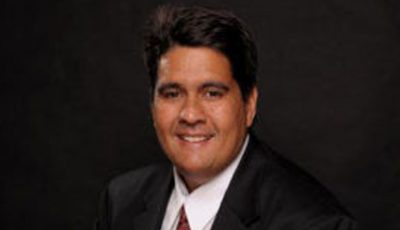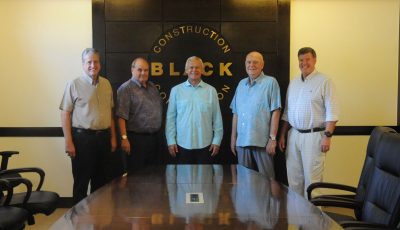$125K in damages awarded to businessman
Yu wrongfully detained in China for 671 days
A Chinese businessman who alleged that he was detained in China for 22 months due to political influence exerted by his former business partners on Saipan, has prevailed in a lawsuit in federal court and was awarded $125,699.60 in damages.
U.S. District Court for the NMI Chief Judge Ramona V. Manglona issued on Monday a default judgment in favor of Wanzhong Yu and against Mingnan Jin and Jinwei Guo.
Manglona found Jin and Guo liable to pay Yu $105,800 in compensatory damages for lost wages, $13,899.60 in compensatory damages for losses based on increased housing costs at $631.80 per month for rent, $2,000 in compensatory damages for the sale of a 2000 Toyota Echo, and $4,000 in compensatory for the sale of a 2000 Lexus.
Manglona heard Yu’s motion for default judgment last Feb. 11.
Universal Group, through counsel Samuel Mok, sued its former president and shareholder, Yu, for conversion and the First Hawaiian Bank for breach of contract.
Universal Group alleged that Yu and the bank have blocked the company from gaining access to its $225,000 of its own funds from a business savings account.
Yu maintains he is still president of Universal Group.
Yu, through counsel Mark Scoggins, filed a cross-claim, alleging he was wrongfully detained in China for 22 months caused by political influence exerted by his former business partners. Yu named Jin and Guo as defendants in his cross-claim.
Jin and Guo are claiming they are the officers and directors of Universal Group and that Guo is now the sole shareholder.
Last May, Manglona dismissed Universal Group’s claims against Yu. She, however, allowed Universal Group to file an amended complaint to allege the requisite facts for its claims.
In a default judgment issued on Monday, Manglona said as to ownership of shares in Universal Group, a declaratory judgment is granted in favor of Yu and against Guo.
Manglona said Yu has presented compelling evidence proving by a preponderance of the evidence that he was wrongfully detained in China for 671 days and that the document through which Yu was purported to have assigned his shares in Universal Group was executed under duress.
Manglona found that the alleged assignment of shares to Guo is void.
Manglona found that Yu was still the majority shareholder holding 440,000 shares out of a total of 800,000 shares in Universal Group on Nov. 22, 2013, and thereafter.
The judge also found that Yu did not call a meeting of the shareholders and directors on Nov. 22, 2013, and that the minutes document purporting to show that a meeting took place that date is invalid.
Accordingly, Manglona said, the court finds that Guo never acquired any shares and is not currently a shareholder in Universal Group.
As to ownership of J&S Corp., Manglona granted a declaratory judgment in favor of Yu and against Guo.
Manglona said the document through which Yu was purported to have assigned his shares in J&S Corp. was executed under duress and that the assignment is void.
The judge further found that on Nov. 22, 2013, there were 300,000 issues shares in J&S Corp. and that based on the testimony of Yu, there was no valid shareholder present.
Manglona said there being no majority shareholder on Nov. 22, 2013, the court finds that there was no meeting of the shareholders and directors and that the minutes document purporting to show that a meeting took place on that date is invalid.
Accordingly, the judge said, Guo never acquired any shares and is not now a shareholder in J&S Corp.
Manglona granted a default judgment in favor of Yu and against Guo and Jin on Yu’s cause of action for conversion.
Manglona said based on Yu’s testimony, the court finds that Jin for himself and at Guo’s direction, wrongfully converted and sold a 2000 Toyota Echo and a 2000 Lexus.
Manglona said the two cars rightfully belonged to Yu.
Manglona said Jin and Guo forged Yu’s signature when they sold the vehicles for their own benefit.
On the issue of false imprisonment, Manglona said Yu has presented compelling evidence that he was wrongfully detained in China for 671 days.
Manglona said Jin and Guo instigated and participated in the unlawful confinement of Yu.
The judge said Yu suffered injury and incurred damages due to the unlawful confinement.
On malicious prosecution, Manglona said Jin and Guo initiated the criminal proceedings against Yu without probable cause and primarily for a purpose other than bringing Yu to justice.
Manglona said Yu suffered injury and incurred damages as a result of the malicious prosecution.
Manglona also found that Yu suffered injury and incurred damages as a result of the abuse of process.
The judge, however, denied Yu’s claim for defamation and trespassing.
Manglona said any false statement against Yu would have been made as early as 2008 and that a cause of action for defamation, if any, would have accrued at that time.
This claim, the judge said, is time-barred under the relevant two-year statute of limitations.
Manglona said Yu has no standing to assert trespassing because the alleged trespassing would have taken place on property belonging to Universal Group and J&S Corp.
The trespassing claim, if any, would belong to the corporations and not to Yu’s, according to Manglona.



























